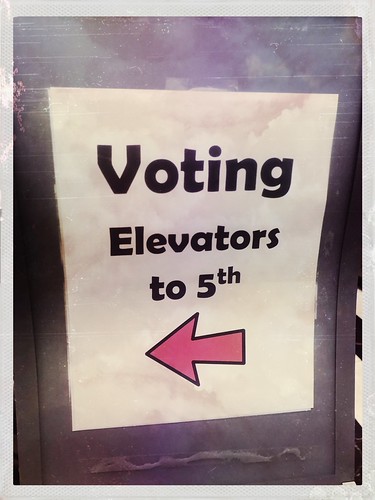
NPR reports:
According to the National Popular Vote organization, which oversees efforts to persuade states to join the compact, 14 states and the District of Columbia have agreed to pledge their 189 electors to the winner of the national popular vote — regardless of which candidate won the state. Nevada, with its six electoral votes, would bring the total to 195. Once 270 electors are pledged, the compact would kick in.
The effort is part of a national movement to neuter the Electoral College and give more weight to the popular vote. Democrats in particular have been stung by the Electoral College, which effectively gives disproportional voting power to smaller, rural states that tend to vote Republican. In addition to President Trump, George W. Bush also won the White House without winning the popular vote.
Nevada’s Senate vote to join the agreement was 12-8, entirely along party lines. Every Republican voted against the proposal. Gov. Steve Sisolak, a Democrat, has not indicated whether he will sign the measure into law.
As NPR has reported, the popular vote movement seems to be gathering steam. In February, 11 states were on board. Since then, Colorado, Delaware and New Mexico have signed on.
(click here to continue reading Nevada May Break Up With The Electoral College : NPR.)
I’m ok with circumventing the Electoral College. We’ve changed many things about elections over the decades since 1776, and the Electoral College is another relic from our racist past, and should be set aside.
Video explainer…
Here’s a longer explanation via:
The National Popular Vote interstate compact would guarantee the Presidency to the candidate who receives the most popular votes across all 50 states and the District of Columbia. The bill ensures that every vote, in every state, will matter in every presidential election. The bill is a constitutionally conservative, state-based approach that preserves the Electoral College, state control of elections, and the power of the states to control how the President is elected.
The National Popular Vote bill has been enacted by 15 jurisdictions possessing 189 electoral votes, including 5 small jurisdictions (RI, VT, HI, DC, DE), 6 medium- size states (MD, MA, NM, WA, CT, CO), and four big states (NJ, IL, NY, CA). The bill will take effect when enacted by states with 81 more electoral votes. The bill has passed at least one chamber in 9 additional states with 82 more electoral votes (AR, AZ, ME, MI, MN, NC, NV, OK, OR). A total of 3,357 state legislators from all 50 states have endorsed it.
The shortcomings of the current system of electing the President stem from “winner-take-all” laws that have been enacted by state legislatures in 48 states. These laws award all of a state’s electoral votes to the candidate receiving the most popular votes in each state.
Because of these state winner-take-all statutes, presidential candidates have no reason to pay attention to the issues of concern to voters in states where the statewide outcome is a foregone conclusion. In 2012, as shown on the map, all of the 253 general-election campaign events were in just 12 states, and two-thirds were in just 4 states (Ohio, Florida, Virginia, and Iowa). Thirty-eight states were completely ignored.
…
The U.S. Constitution (Article II, Section 1) gives the states exclusive control over awarding their electoral votes: “Each State shall appoint, in such Manner as the Legislature thereof may direct, a Number of Electors….” The winner-take-all method of awarding electoral votes is state law. It is not in the U.S. Constitution. The winner-take-all rule was used by only three states in 1789, and all three repealed it by 1800. It was not until the 11th presidential election (1828) that even half the states used winner-take-all laws.
The National Popular Vote interstate compact will go into effect when enacted by states possessing a majority of the electoral votes—that is, enough to elect a President (270 of 538). At that time, every voter in the country will acquire a direct vote for a group of at least 270 presidential electors supporting their choice for President. All of this group of 270+ presidential electors will be supporters of the candidate who received the most popular votes in all 50 states and DC—thus making that candidate President.
In contrast, under the current system, a voter has a direct voice in electing only the small number of presidential electors to which their state is entitled. Under NPV, every voter directly elects 270+ electors.
National Popular Vote’s Advisory Board includes former Senators Jake Garn (R–UT), Birch Bayh (D–IN), and David Durenberger (R–MN); former Congressmen John Anderson (R–IL, I), John Buchanan (R–AL), Tom Campbell (R–CA), and Tom Downey (D–NY). Other supporters include former Governor Howard Dean (D–VT), House Speaker Newt Gingrich (R–GA), and Governor Jim Edgar (R–IL).































